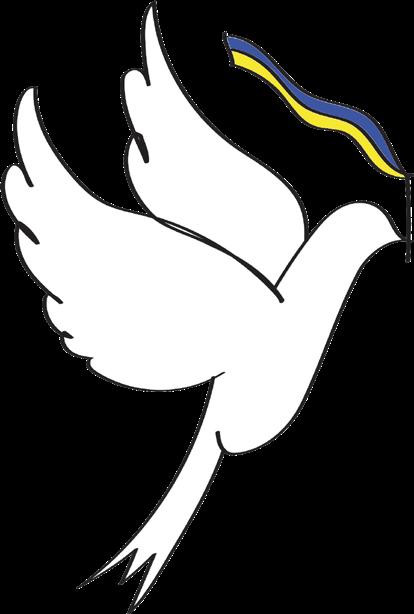Destroyeddreams
Voices Of Ukrainian People
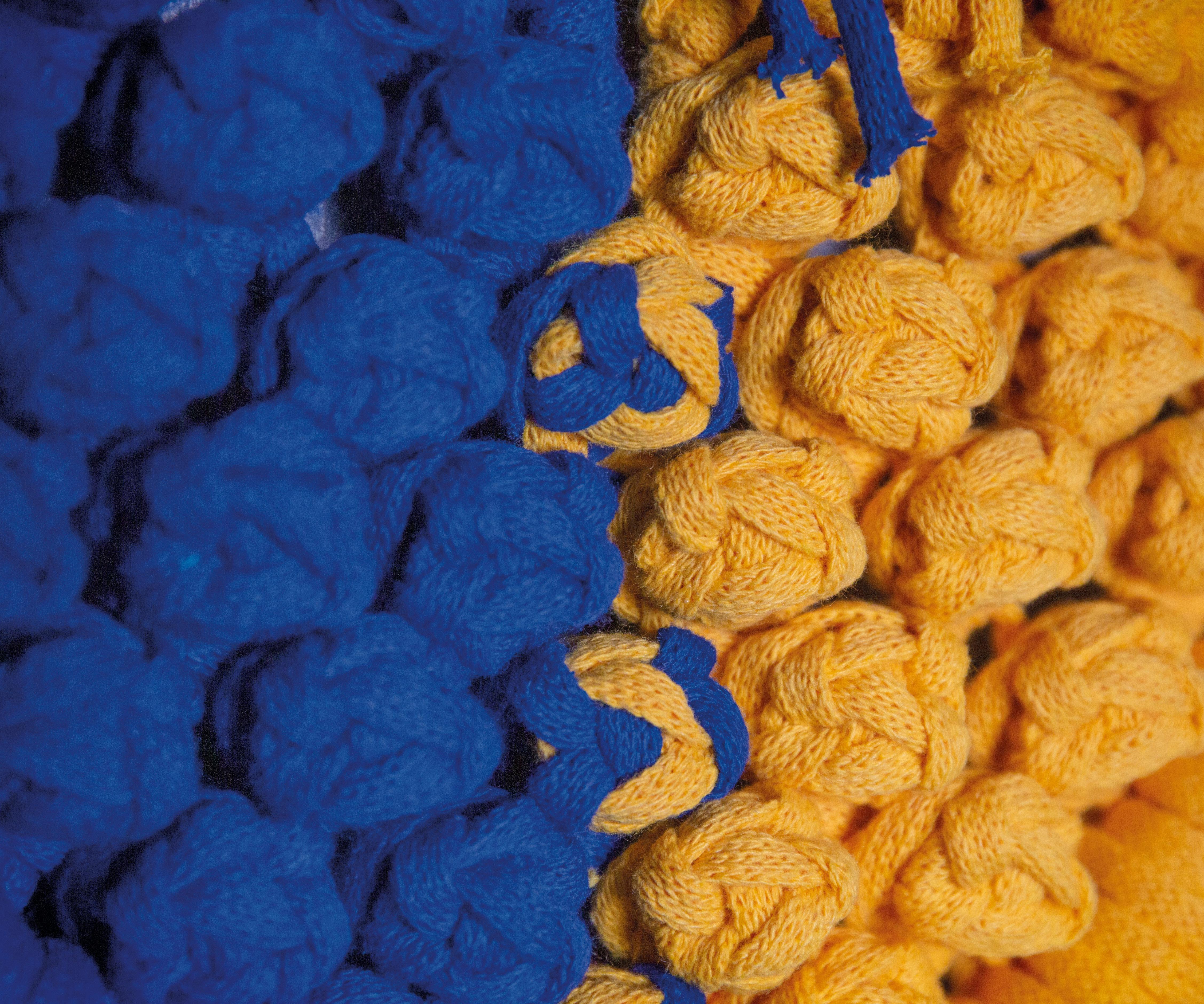


On 24th of February 2022 Ukraine was the target of a cruel and unprovoked attack.
Because of the Russian invasion millions of Ukrainian citizens had to leave their home. By the end of 2022 over 47 000 Ukrainians had sought refuge in Finland.
This book brings the horrors of the war to light by Ukrainian refugees who lost their dreams to the injustice.
We are thankful for the brave people who shared their stories. We also want to thank Association of Ukrainians in Northern Ostrobothnia for the helping hand.
This book is a part of Journalistic Lab studies in Oulu University of Applied Sciences.
One evening in 2014 Tanja’s 14-year-old daughter Anna said at a dinner table, “I’m not going to die”.
Tanja, Anna, Tanja’s husband Viktor and Tanja’s mother Tetiana lived in Eastern Ukraine occupied by Russian forces. Tetiana lived her whole life in Donetsk, where everyone lived in peace and life went on as normal.
The family had a big house built just two years prior and everything was looking good with the family-owned company. The family was making their dreams a reality until Russia invaded the Crimean Peninsula and parts of Eastern Ukraine. The life of dreams was about to turn into a nightmare.
That very evening Tanja’s family decided to flee from their home. They had to sell their dream house at a bargain, take everything they could with them and travel to the next town over since the railway to west was cut off.
The family found their new house in Irpin in 2018. The house had pretty much nothing and they were out of money to refurbish their house. With the help of YouTube the family learned to renovate their new house into a new home. They could start building their dreams again.
In 2022 the nightmare that the family fled from Eastern Ukraine, returned.
Russia’s full-scale attack brought the horror all over Ukraine and Irpin was soon the frontline for the war. On one side of the city the Russian invaders gathered their forces. On the other side Ukrainian defense forces got ready to drive away the attackers.
Tanja and her family found themselves in the middle of all the carnage. Many of the houses next door were burned down and there was gunfire from both sides. When the Ukrainian forces took back areas, the Russians soon took them over again and the Ukrainians had to retreat.
In the beginning of March, the family had had enough. They would have to flee again. Viktor and Tanja went around the neighbourhood looking for others but found no one.
At home the family packed one rucksack each. In them fit only their important documents and one set of spare clothes. If that.
The only way out of the frontline was a bridge destroyed by the Ukrainian forces. The way over a makeshift bridge was the fastest way out, so the family took their chance crossing it. As Tetiana was on the bridge, she fell five meters and hit the bridge’s concrete foundation. She had an open fracture on her thigh, and she was taken to a field hospital by the Ukrainian forces. The same day she was operated on and the next day the family continued their journey.
When Russia attacked, Tanja’s daughter Anna was vacationing in Northern Finland with her own family. In four days, Tanja, Viktor and Tetiana traveled to Helsinki. During the whole journey up north, the family was starving. On the train they got to experience great sympathy as locals went and bought them food.
Tanja, Tetiana and Viktor found themselves a home and jobs in Oulu. Even if the family’s new life would seem a normal suburban life, all the dreams they had are now in ruins. They haven’t let themselves dream again.


“We had everything...
...suddenly we have nothing.”
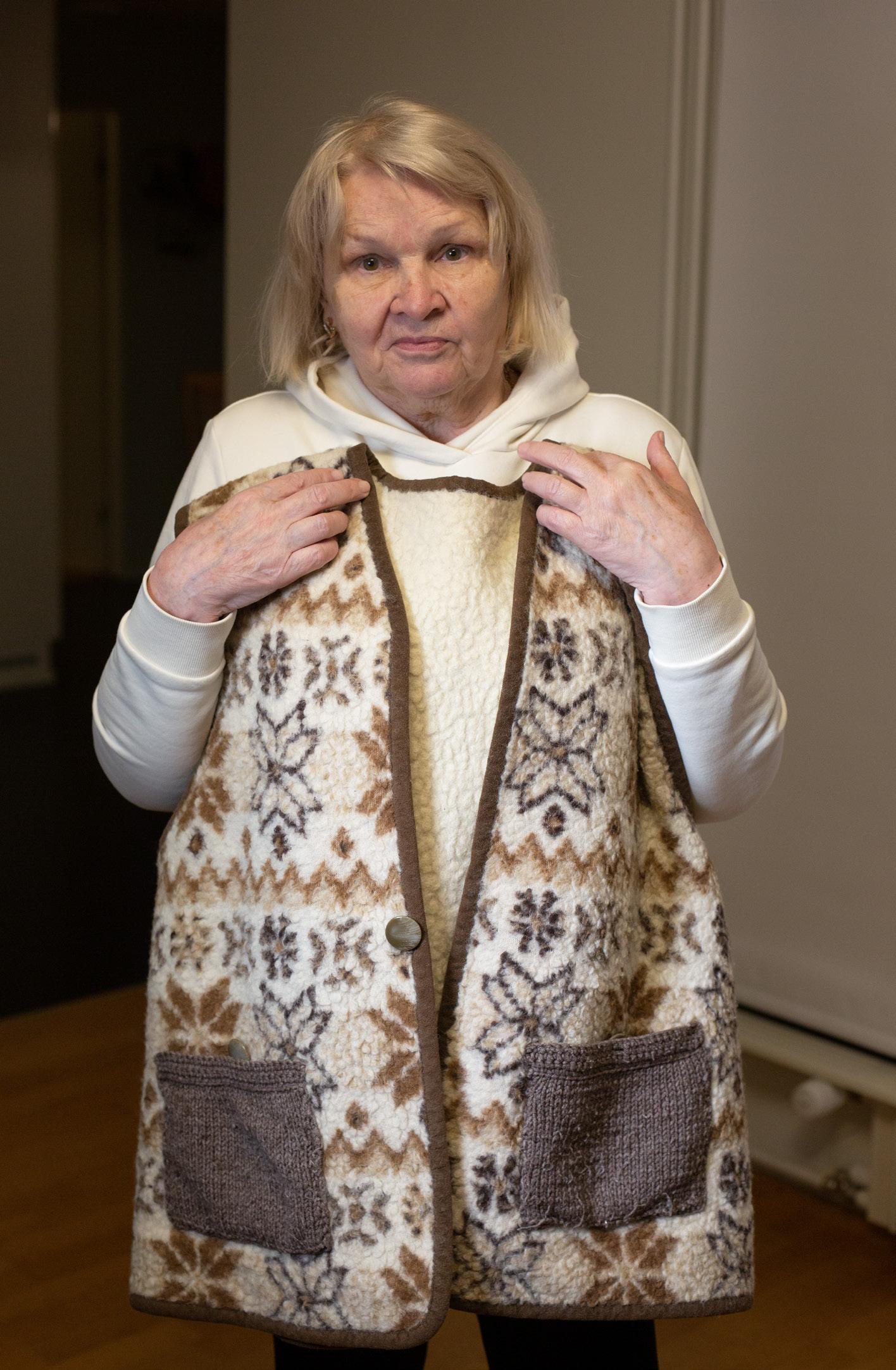

“We got this heart from the Finns who had furnished our house. It was here when we moved in.”


“They are barbarians. I don’t understand how there can be so much evil in one nation.”
“They destroyed everything. Not one house was left untouched.”

Irpin is a city around 20 kilometers from Kyiv in the Bucha district. The city was home to 65 000 citizens until February 2022. Located between the rivers Irpin and Bucha, the town was a quiet neighbourhood in the backyard of the capital.
Previously the area was made from smaller 17th century villages. Irpin was formally founded in 1899 as a junction of the Kyiv–Kovel railway. The city had seen its fair share of violence in the Second World War, when the Nazis and Soviets fought in the battle of Kyiv.
After the events of the Russian attack in 2022, Irpin was awarded with the title Hero City of Ukraine. It all came with a price.
Irpin was affected by the massacre of civilians in neighbouring Bucha and multiple civilians were also pointlessly slaughtered in Irpin.
As the battle raged, civilians fled the once quiet neighbourhood and were met by Russian artillery fire that killed at least eight of the hundreds of innocent people.
Irpin was the last front before the capital and the battles were massive in the city. As a last effort the Ukrainian forces destroyed the bridge over the Irpin river, the only way out of the city into the capital.
Liliia had opened her own photo studio just before the war. Later her love for photography turned against her.
Liliia’s life was picture perfect. She was married with two kids and she and her husband had good jobs. War didn’t seem possible and Liliia, like many others, didn’t think much of it.
In the morning of the attack Lillia’s family woke up to the news and their neighbours packing their cars and leaving. The queues to gas stations, grocery stores and ATMs were kilometers long.
Standing in line to an ATM Liliia had a view of her neighbourhood. She saw a military vehicle and soldiers next to her home and decided to run back home thinking they were Russians who came to kill her family. Luckily, it was a Ukrainian patrol looking for volunteers to join the fight.
Later that day, the town was almost deserted.
Two weeks after the war began, Russians came to Liliia’s town. No one was allowed to leave without permission and a curfew was put in action.
Liliia’s grandmother lived in a village 50 kilometers away and when the phonelines were cut, Liliia decided to go get her. She and her husband marked their car with white pieces of cloth and went on their way.
The sides of the roads were full of cars, as if the Russians had been playing in a shooting range. They had shot the fleeing civilians in their cars. The sides of the roads were full of death.
Driving with a speed of almost 200 kilometers per hour, the trip took Liliia and her husband just 15 minutes. In those 15 minutes she realized what was important to her in life.
Liliia’s grandmother couldn’t understand the situation even after seeing the carnage on the road. Liliia and her husband took her to their hometown.
The family lived in their home until the nightly bombings got too intense and they left for a shelter at Liliia’s husband’s workplace. Liliia’s son began to stutter from the trauma of the war and the noise from constant low-flying Russian jets made his ears bleed and gave him panic attacks. Like it did to many other children.
Liliia found a new job selling apples at the local market. She yelled, danced and sang to lure the buyers. The fresh Ukrainian apples were a delicacy compared to the food the Russians brought to the town.
In the summer the family got a break from the dreary life in the war-torn town and traveled south to the countryside, where Liliia’s husband had a job assignment. It was way more peaceful, and the family enjoyed their time there.
The family made friends there and together they made plans to leave the country. The next day a van full of women and children left towards the Crimean Peninsula, which was the only way out. Liliia’s husband would take the journey later.
On the Russian side of the border, they were apprehended and taken to a filtration camp where they were interrogated. Liliia’s only possession she had with her was her dear camera. That made her and her company stand out in the searches. She was harshly interrogated because of it, and the camera was examined thoroughly.
Luckily, unlike many others, Liliia and her children were finally let through to continue their journey. She doesn’t plan for a future in Finland. Her heart and dreams are still in Ukraine, and she is determined to get them back someday.


“The only thing I took with me was my camera. In the camera bag were these giftcards.”
“In that moment I was afraid to die. Who would take care of my children who stayed in the city?”


“The corpses in those burned cars were civilians, who also wanted to flee to a more peaceful area.”
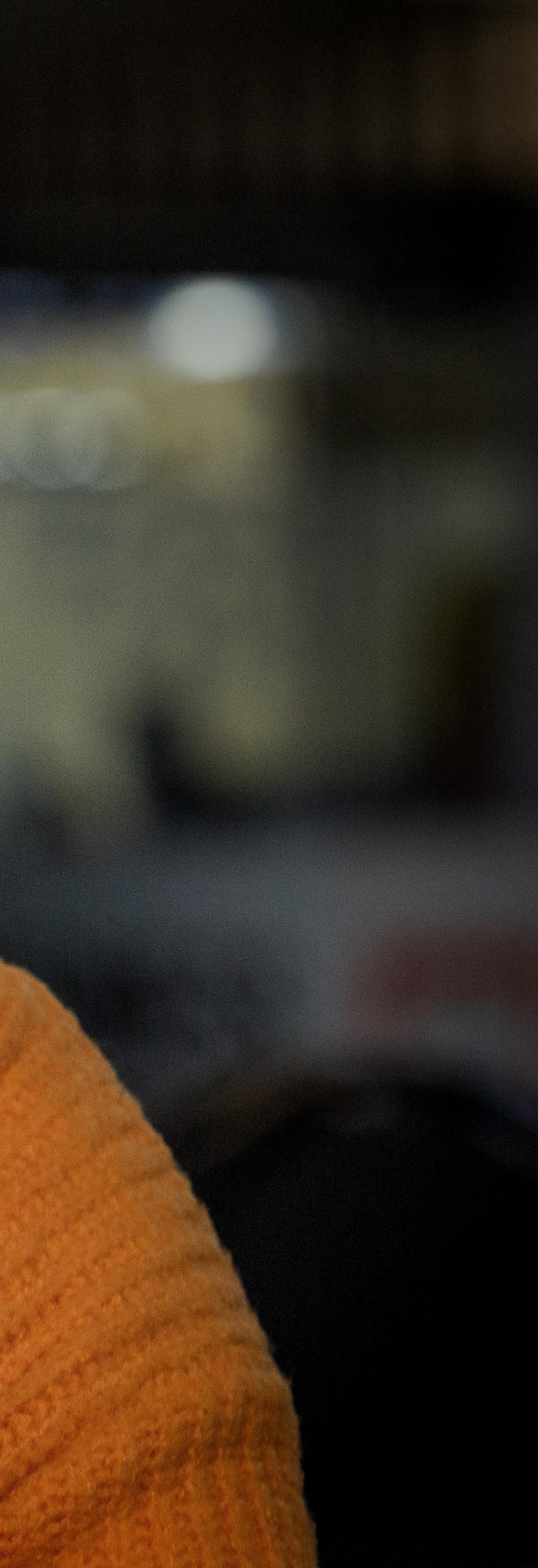

21-year-old Albina was planning to get married in the spring. The dress was waiting in the closet, so were the shoes, and the venue was reserved. She loved her home and hometown. She had her whole life ahead of her.
For three months, there had been rumors about the possibility of a war, but no one really believed it. When the war finally broke out, Albina’s mother Tanja was going to work just like Albina’s father. Since Albina was starting to get quite hysterical and scared, her mother decided to stay with her. Her father still went to work, even though there were already explosions all around.
The situation quickly worsened. Albina still believed that the whole nightmare would pass. The first night they spent in their own apartment, but on the second day they realized that the war is real. They moved to the cellar. Albina feared for her life.
In the first couple of days, Albina and her family still went to the grocery store. The queues were really long everywhere. People were filling up their cars, queuing at ATMs and stocking up on perishable food in their cupboards.
During the first days of the war, Albina’s family was hiding in the basement of their house, seeking some kind of safety, until they had to go to a civilian shelter because houses were being destroyed all around.
Albina had to witness death around her. And she was afraid of dying herself.
Life in the civilian shelter was very difficult. There were a lot of restrictive rules and small children had to be protected from hearing anything war related. The children were playing and running around, but the floor was so covered with sand that it whirled in the air. People had to spray water on the floor to keep the sand moist, but it still got very hard to breathe.
Albina and her mother were forced on leaving their home and fleeing from their hometown. The journey from Kharkiv to Lviv was very tough, as was the continuation to Warsaw. There were no seats left on the train and people fell over each other.
Finally, they arrived in Finland after a number of painful weeks of horror. Albina had previously worked seasonally in Finland, and that is why she arrived in Hailuoto with her mother. Later, after working for a while, she moved to Oulu. Albina’s father arrived in Finland in June. Tanja and her husband went back to Ukraine in October to take their grandmother to safety in Finland.
Life started all over again. Life that was completely destroyed. Just like a child learns things at the beginning of their life, so does Albina now. One day at a time, without any dreams.
“Sometimes during the day there were moments when they didn’t bomb so much, but it started again at night. You never knew if they would hit you or next to you.”

“I got strength from this prayer. It was the only consolation in that apocalypse.”
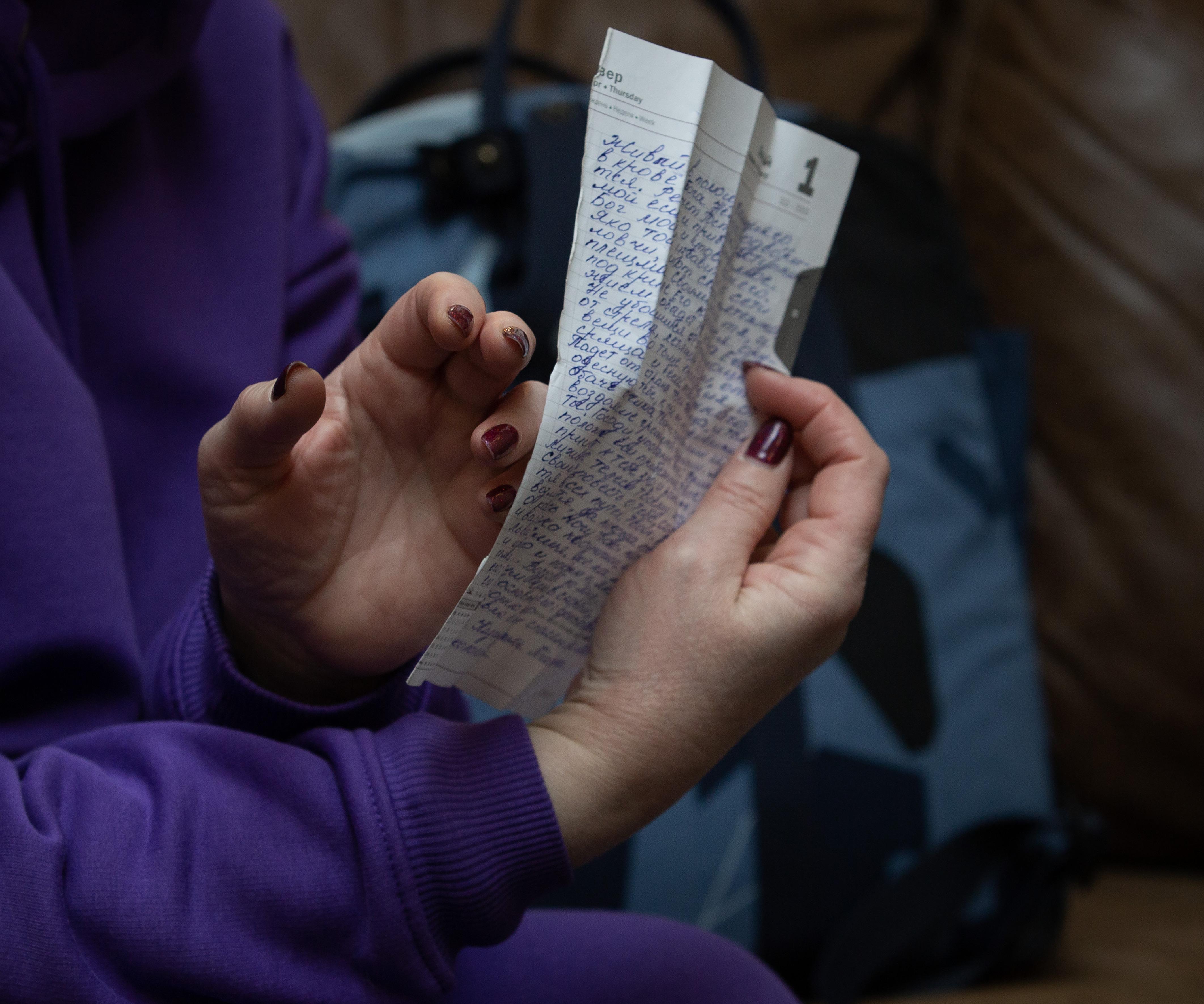

“There were injured people everywhere. And dead people. The ambulances did not have time to pick them up in time.”
“That’s when I thought this is the end. I’m 21 years old and I am probably not going to survive.”

“Shortly before the war, I started making this photo album. My father brought it to me when he came here. It’s really important to me now.”


“On the day we left to the shelter, our house was also bombed.”

“Some men went out for a cigarette but did not return to the shelter. They had been shot.”
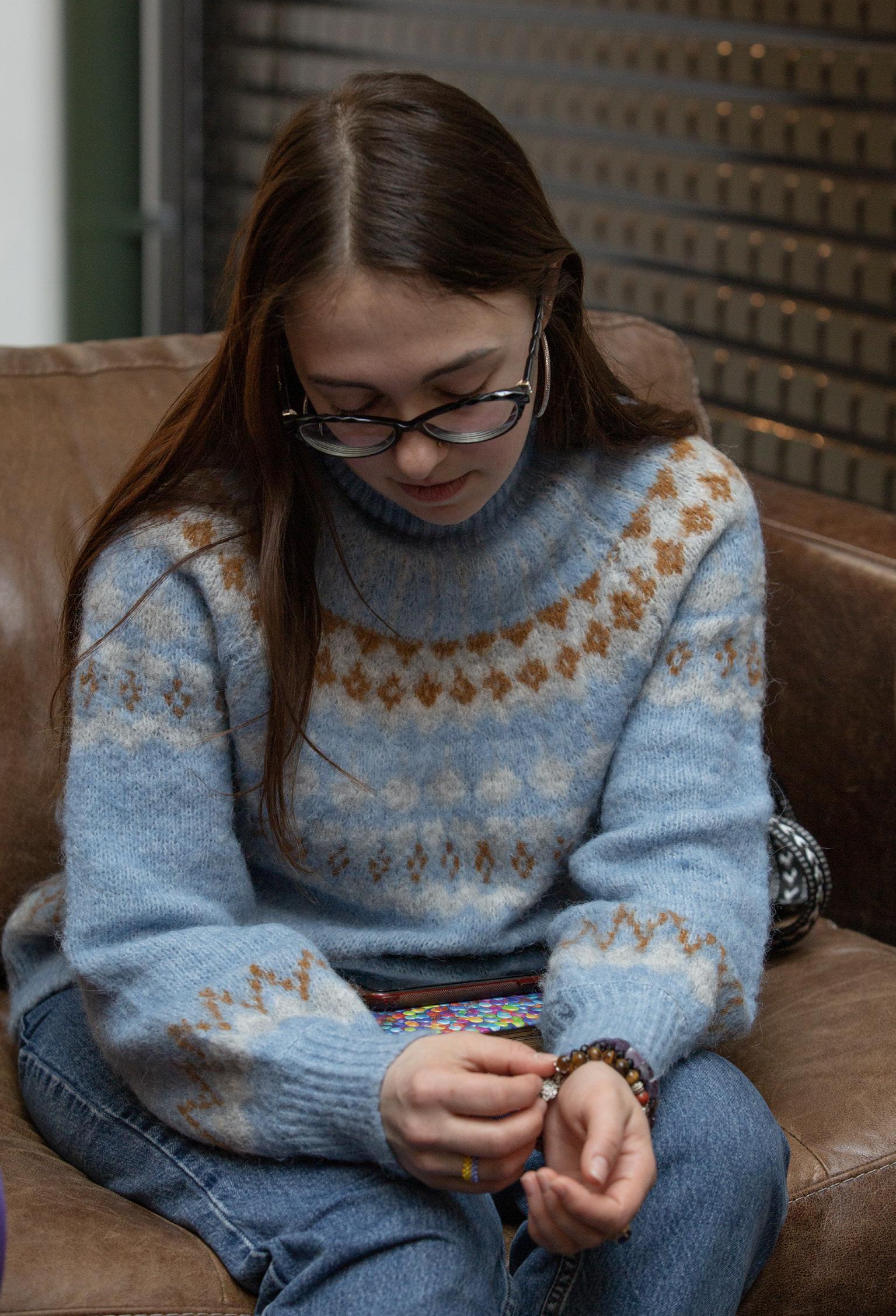

“In Finland everyone smiles and is friendly. We have been very well taken care of.”
“Deep down, we want to go back, but we don’t know if there is anything to return to.”

Kharkiv is only 30 kilometers from Russia. Most people there speak Russian as their first language and it was earlier very proRussian city. Later, already before the war, the language changed to Ukrainian and the visits to Russia stopped. Putin was and still is openly hated. He promised to liberate the city, but he unleashed hell on its citizens.
Known from its many poets, Kharkiv was, one of the most important centers of education and culture in Ukraine. The city was also a major industrial center, where the defense equipment industry was a part of it. Kharkiv was founded in 1654–1655 when the Ukrainian Cossacks built a fortified settlement on the plateau next to the Lopan and H’arkiv rivers. Although the fort was under Russian rule, the Cossacks had extensive autonomy. The small defensive fortress quickly grew into a trade center and an important traffic hub.
On the first day of the war, Russia attacked along the entire length of the border between Russia and Ukraine. Kharkiv was one of those cities. The Russians occupied Kharkiv for several months until Ukraine succeeded to banish the Russian soldiers from the city and its surrounding areas in September 2022.
In March 2022 Kharkiv was awarded with the title Hero City of Ukraine.
Kharkiv is still in the firing line. This beautiful city loses its monumental and historical buildings all the time. And its people.

Oleksandr was working as a welder in Taivalkoski, Finland when he noticed a pain in his stomach. He was diagnosed with cancer in January, and he returned home to Ukraine just days before the Russian assault.
Oleksandr and Olga lived with their two children near Kherson. The family was renovating their home where they had dogs, cats, rabbits and ducks living with them. The area was famous for its beautiful nature.
When Oleksandr returned home in late February, he registered in the local hospital. His next chemotherapy session was planned for the beginning of March.
The morning of the attack Olga’s friend called her to tell the news. Like many others, the family wasn’t certain if the news was true.
It was true.
The family stayed in their home. They slept with their clothes on and had two suitcases packed, so they could flee as fast as possible. The house doors rattled during the bombing. Olga didn’t show her children the fear and stress of the situation. She was certain that showing it would make the situation worse for them.
Oleksandr needed his cancer medication, but it was nearly impossible to get prescription medicine and all the hospitals were closed. Luckily, after pleading with the doctor the family was provided with the medication. They were let into the hospital spaces for administering the chemotherapy, which they had to do by hand one drop at a time because there wasn’t any equipment left.
The family decided to escape with the help of their friends. They had 15 minutes to pack everything. Two of their dogs could come with them, but the rest of their animals had to stay. Olga’s sister and mother joined them.
They drove as a caravan of five cars with the parents in the front so the children wouldn’t be the first in the line of fire, if it came to that. They had marked their cars with white children’s clothes and written “children” on them. It likely wouldn’t have helped if they had come across Russians.
As locals, they knew a route the Russians wouldn’t take. In Mykolaiv, the family contacted their town’s official and reported the safe way they had taken. The next day almost 300 cars safely escaped the area on that route. Then the Russians learned of it.
The Russian invaders often came to steal food from the locals. Because the family’s home was being renovated and had construction equipment around it, the neighbours soon realized, that the Russians didn’t bother to check it, so the neighbours hid their food there.
The family also had a well on their property and during water shortages it became the lifesaver for the town.
The family made their way to Finland. Olga’s sister and mother stayed in Latvia.
In Finland it was crucial for Oleksandr to get treatment, and they contacted the doctor, who had treated Oleksandr previously in Finland. He got the care he needed, and his cancer went into remission.
Olga, Oleksandr and the children have decided to stay in Finland for the time being. Once their dream home was a beautiful playground for their children. Now it’s only a minefield.


“We didn’t have time to think of the possibility of a war. Oleksandr’s cancer diagnosis took all of our thoughts elsewhere.”


“Our children had hobbies. Our daughter took dancing lessons and our son went to an art school.”

“Our neighbourhood is now a minefield. Last week a child of our friend was killed by a mine.”


“They came and stole and took what they wanted by force.”

“Black, burned by fire, half-destroyed residential buildings of the city look with their windows to where the Russian artillery came from. They look at Russia. And now, as in a mirror, the Russian state can see itself. “
– Volodymyr ZelenskyBBC. 8.6.2022. Irpin: Russia’s reign of terror in a quiet neighbourhood near Kyiv. https://www.bbc.com/news/world-europe-61667500
Council of Europe. 31.3.2023. Anniversary of the liberation of towns Bucha and Irpin. https://www.coe.int/fi/web/portal/-/anniversary-of-theliberation-of-towns-bucha-and-irpin
the Guardian. 24.2.2022. Russia has invaded Ukraine: what we know so far. https://www.theguardian.com/world/2022/feb/24/russia-hasinvaded-ukraine-what-we-know-so-far
Helsingin Sanomat. 21.2.2022. Rajakaupunki Harkova oli Venäjä-mielinen, mutta sodan uhka on saanut sen uhkumaan ukrainalaista patriotismia. https://www.hs.fi/ulkomaat/art-2000008620662.html
Human Rights Watch. 8.3.2022. Ukraine: Russian Assault Kills Fleeing Civilians. https://www.hrw.org/news/2022/03/08/ukraine-russianassault-kills-fleeing-civilians
Ilta-Sanomat. 24.9.2022. Elämää miehityksen alla. https://www.is.fi/ulkomaat/art-2000009089082.html
Internet Encyclopedia of Ukraine. 2019. Irpin. http://www.encyclopediaofukraine.com/display.asp?linkpath=pages%5CI%5CR%5CIrpin.htm
Internet Encyclopedia of Ukraine. 2006. Kharkiv. http://www.encyclopediaofukraine.com/display.asp?linkpath=pages%5CK%5CH%5CKharkiv. htm
Ministry for Communities and Territories Development of Ukraine. 17.7.2020. New areas: maps + composition. https://www.minregion.gov.ua/ press/news/novi-rajony-karty-sklad/
MTV Uutiset. 24.2.2022. Venäjä iski kaikkiin Ukrainan suuriin kaupunkeihin – näin hyökkäys on edennyt. https://www.mtvuutiset.fi/artikkeli/ venaja-hyokkasi-kaikkiin-ukrainan-suuriin-kaupunkeihin-operaation-mittakaava-hahmottuu-kartalla/8363514#gs.uiph0f
MTV Uutiset. 5.2.2023. Venäjä iski ohjuksella Harkovan yliopistoon – video näyttää historiallisen rakennuksen tuhot. https://www.mtvuutiset. fi/artikkeli/venaja-iski-ohjuksella-harkovan-yliopistoon-video-nayttaa-historiallisen-rakennuksen-tuhot/8626824#gs.tyu7hq
State Statistic Service of Ukraine. 1.1.2022. Number of Present Population of Ukraine, as of January 1. https://ukrstat.gov.ua/druk/publicat/ kat_u/2022/zb/05/zb_%D0%A1huselnist.pdf
Yle Areena. 17.10.2022. Ulkolinja: Harkova sodan jaloissa. https://areena.yle.fi/1-63309372
Yle Uutiset. 27.2.2022. Venäläisjoukot ovat päässeet Ukrainan toiseksi suurimpaan kaupunkiin Harkovaan. https://yle.fi/a/3-12043017/64-357194
Photographs © Anni Männikkö, Anu Keränen
Text © Joona Hietala, Anu Keränen
Creative production: Jutta Karjalainen
Graphic design: Viivi Hanhineva
Published by Oulu University of Applied Sciences
Printing: Punamusta Oy, Oulu Finland 2023
ISBN 978-951-597-237-8 (paperback)
ISBN 978-951-597-238-5 (PDF)
On 24th of February 2022 Ukraine was hit with multiple missile strikes. Russia had invaded. Thousands of Ukrainians lost their lives in the attack. Even more lost their homes. This is the first armed conflict on European soil since the Second World War.
Destroyed Dreams – Voices of Ukrainian People tells the stories of Ukrainian refugees in Oulu. This book gives these people a chance to tell about the horrors they have faced escaping the war torn country. Like Ukraine, all their dreams lay in ruins.
